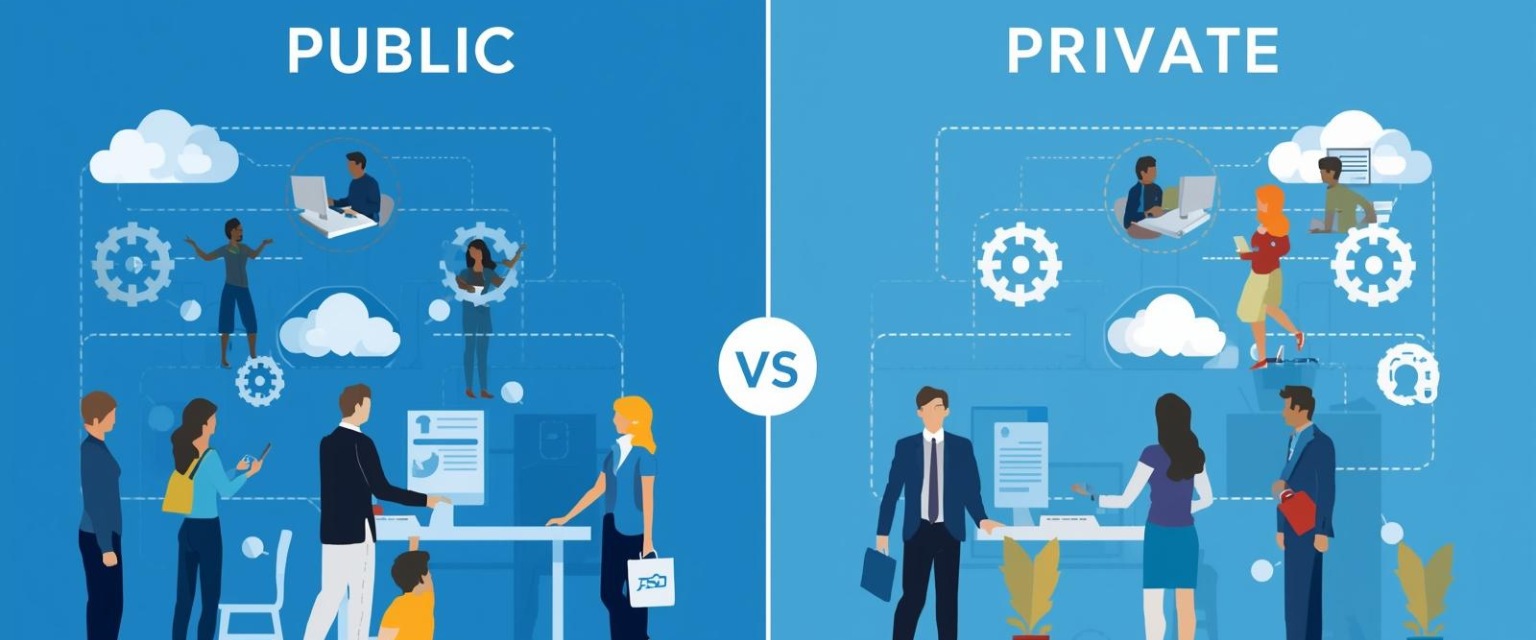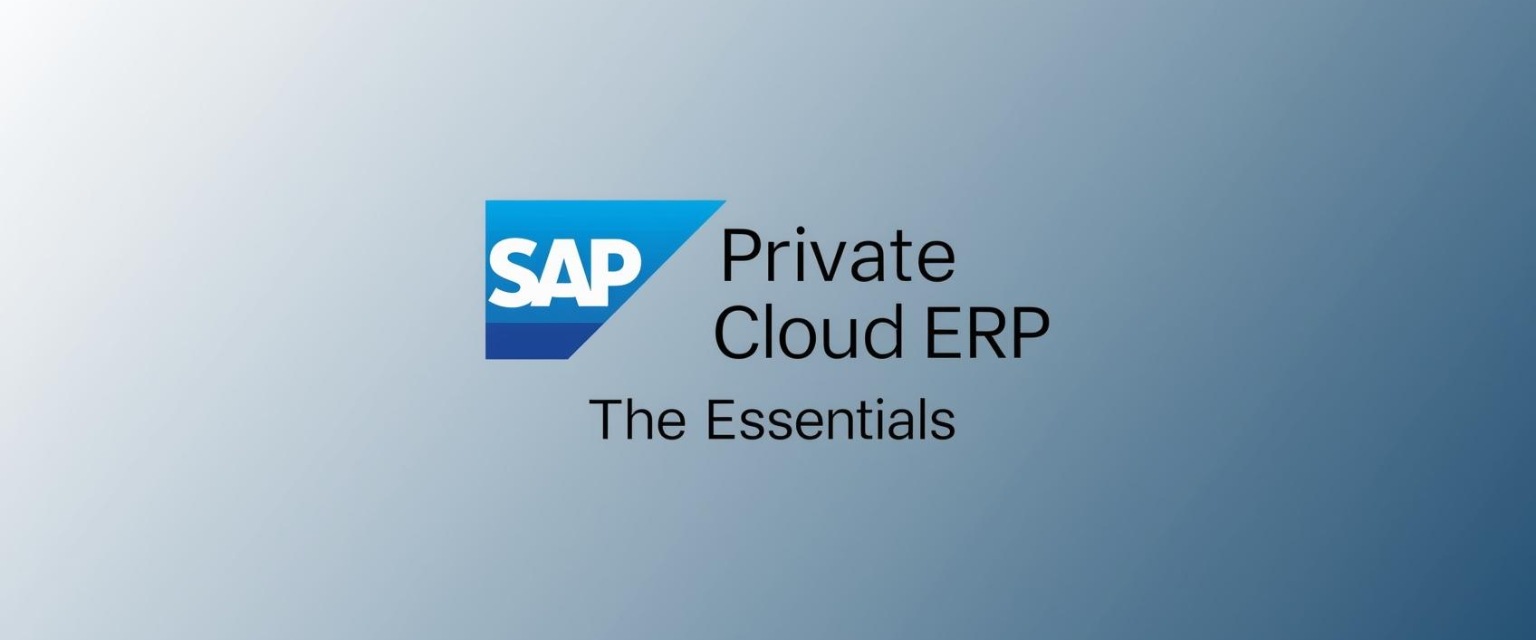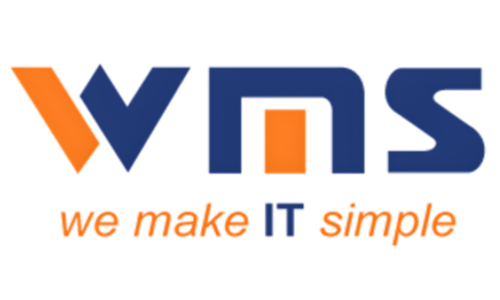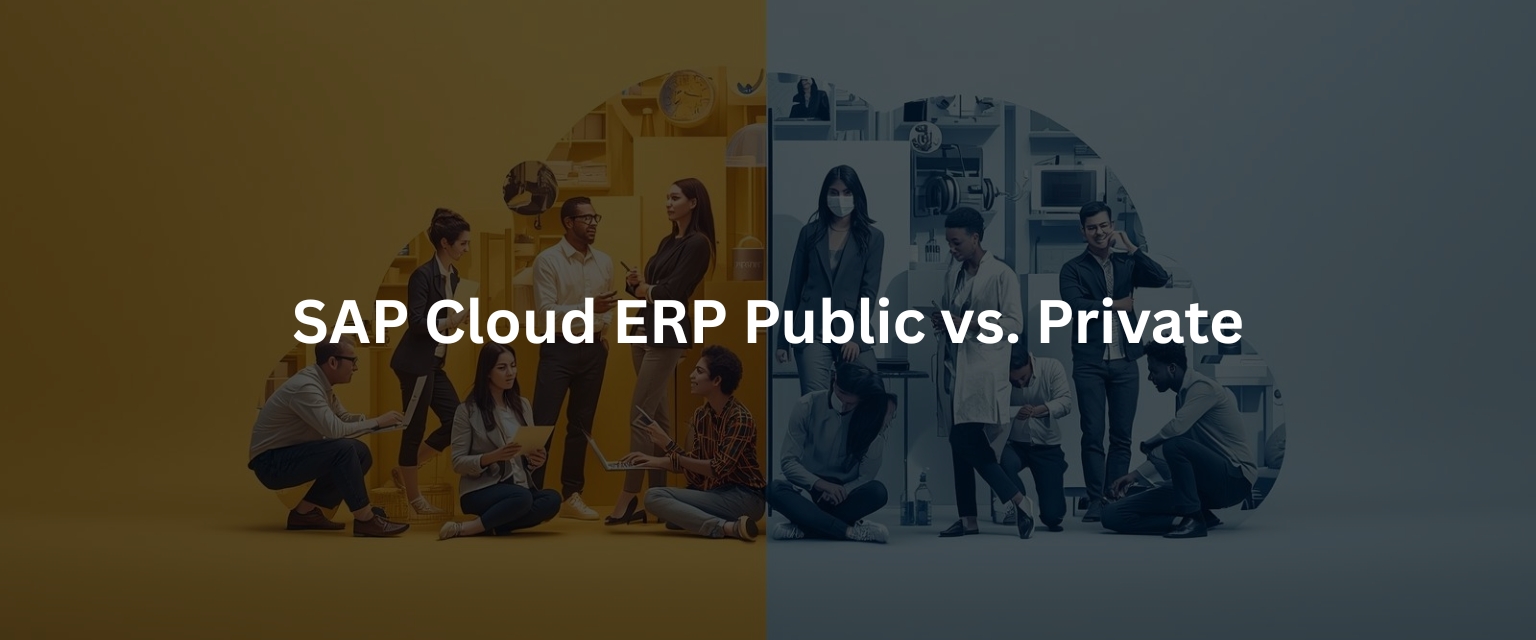Imagine This…
You’re the operations manager at a fast-growing distribution company in the heart of Dubai. Your team is juggling orders, inventory, multiple warehouse sites—and feeling the heat whenever a system glitch threatens to delay an important shipment. Leadership agrees: It’s time to invest in world-class tech. All eyes turn to SAP Cloud ERP—the gold standard for business process automation.
But almost immediately, you’re hit with another tough choice: Should you opt for SAP’s Public Cloud ERP or take the Private Cloud route?
If you’re nodding along, you’re not alone. Deciding between these two SAP cloud deployment models is a classic crossroads for businesses modernizing their operations, especially in the Middle East where growth, speed, agility, and compliance need to work hand-in-hand.
Let’s break down this decision in plain English. By the end of this post, you’ll feel confident about which SAP Cloud ERP model best suits your business needs (and, importantly, why).
Why SAP Cloud ERP?

SAP Cloud ERP isn’t just another accounting or inventory tool. Think of it as the digital backbone for all your processes—unifying finance, sales, operations, procurement, and more. Cloud ERP helps:
- Centralize information, giving real-time visibility across locations.
- Automate manual, repetitive tasks, freeing up your team to focus on strategy.
- Scale smoothly as your business in the Middle East expands into new markets or adds new product lines.
- Stay compliant with ever-shifting local and global regulations.
But with SAP, not all clouds are built the same. Let’s clear up the confusion around the Public vs. Private Cloud ERP models.
Setting the Stage: What is Public vs. Private Cloud ERP?

Think about the difference between living in a serviced apartment building versus owning a private villa:
Public Cloud ERP (Serviced Apartment Building):
- You have your own apartment (your business’s slice of the software), but you share the building’s amenities, services, and infrastructure with other residents (other companies).
- The landlord (SAP) handles all maintenance and upgrades. Rules apply to everyone equally.
Private Cloud ERP (Private Villa)
- You own (or lease) your own space, built to your specs. You decide on renovations, who visits, and how things work inside.
- While you still rely on professional caretakers (SAP or partners), you have far more say in customization and privacy.
Both options promise robust security, regular updates, and peace of mind. So, which is right for your business?
SAP Public Cloud ERP: The Essentials

SAP Public Cloud ERP, often called SAP S/4HANA Cloud, Public Edition, delivers a ready-to-use solution hosted and managed entirely by SAP. It’s designed for businesses that value:
- Simplicity: Preconfigured processes based on best practices.
- Cost Effectiveness: Lower up-front and ongoing costs.
- Speed: Fast deployment—sometimes in weeks, not months.
- Continuous Innovation: New features and regulatory updates delivered automatically.
Perfect For:
- Fast-growing small to mid-sized businesses.
- Companies with standardized processes and limited need for deep customization.
Key Features:
- Multi-tenant environment (you share the infrastructure with other businesses).
- Regular, automatic software updates.
- Minimal IT overhead—no need for your own data center or tech team to maintain the system.
- Rapid scalability for adding new users or business units.
Pros and Cons of SAP Public Cloud ERP
Pros |
Cons |
|---|---|
|
Lower Total Cost of Ownership: No hardware to buy, and software fees stay predictable. |
Limited Customization: You must work with standard processes; deep tweaks and add-ons are restricted. |
|
Always Up to Date: Enjoy the latest innovations without disruptions. |
Integration Constraints: Connecting with heavily customized third-party applications can be tricky. |
|
Quick Implementation: Go live fast and start seeing ROI sooner. |
Shared Resources: While security is enforced, your data sits alongside other companies’ in the same environment (no intermingling, but the infrastructure is shared). |
|
Scalable: Add functionality as your business grows or as local regulations change. |
Fixed Update Schedule: Updates are managed by SAP, leaving less control over when and how they happen. |
SAP Private Cloud ERP: The Essentials

SAP Private Cloud ERP, often called SAP S/4HANA Cloud, Private Edition, gives you a dedicated cloud environment—still managed by SAP, but tailored for your business. It’s ideal if you need:
- Customization: Processes and workflows built to your specifications.
- Advanced Integrations: Heavy interaction with in-house or third-party systems.
- Dedicated Resources: More control over infrastructure and data residency.
Perfect For:
- Established businesses with complex needs.
- Organizations with strict regulatory, security, or data privacy requirements.
- Companies transitioning from older SAP systems wanting to leverage existing investments.
Key Features:
- Single-tenant environment (your business gets its own dedicated system).
- Ability to customize and extend your ERP solution.
- Flexible maintenance windows and update schedules.
- Choice of where your data physically resides (helpful for compliance).
Pros and Cons of SAP Private Cloud ERP
Pros |
Cons |
|---|---|
|
Extensive Customization: Tailor the system to fit unique business processes or regulatory needs. |
Higher Costs: Increased flexibility and control come with a bigger price tag—both initial setup and ongoing maintenance. |
|
Flexibility: Choose update schedules, integrate deeply with legacy or third-party systems, and shape the ERP to your business (not the other way around). |
Longer Implementation: More customization often means longer deployment times. |
|
Enhanced Data Privacy: Greater control over where and how your data is stored—a common requirement in the Middle East. |
Increased IT Involvement: You may need internal or partner IT resources to maintain, update, and further tailor the system. |
|
Smooth Transition: If you’re running SAP ECC or other legacy platforms, private cloud offers an easier road to modernization. |
Head-to-Head: SAP Public Cloud ERP vs. Private Cloud ERP
Feature |
SAP Public Cloud ERP |
SAP Private Cloud ERP |
|---|---|---|
|
Deployment Model |
Multi-tenant |
Single-tenant |
|
Customization |
Limited (standardized) |
Extensive (tailored) |
|
Implementation Speed |
Fast |
Longer (complex projects) |
|
Cost Profile |
Lower |
Higher |
|
Updates & Upgrades |
Automatic, regular |
User-controlled |
|
Compliance & Data Residency |
Shared, but compliant |
User-controlled locations |
|
Integration Flexibility |
Limited |
High |
|
Best for |
Standardized businesses |
Complex, highly regulated firms |
Case Study: A Real-World Middle East Warehouse Scenario
Let’s ground this in a real-world scenario:

Let’s say you’re running multiple warehouses in Jeddah, Riyadh, and beyond. Your core needs:
- Real-time visibility into inventory and order flow.
- Automated compliance with local VAT and customs rules.
- Fast onboarding for new locations or partners.
If your processes are broadly similar to other distribution firms and you want rapid results, SAP Public Cloud ERP is a solid match.
But maybe your model involves custom workflows, complex rebate programs, or deep links with legacy transport management software. Maybe you’ve got to reassure global partners (or auditors) about exactly where your data resides and how it’s handled.
In this case, SAP Private Cloud ERP may offer the configuration and peace of mind you need.
Common Scenarios and Solutions
Scenario 1:
Rapid Expansion, Limited IT Team
You operate in several GCC countries and are opening new warehouse sites fast. You want to avoid complicated upgrades and just keep things running.
Solution: SAP Public Cloud ERP.
Scenario 2:
Highly Regulated
Industry
You handle sensitive goods or serve government clients. Local laws demand strict data controls and custom workflows.
Solution: SAP Private Cloud ERP.
Scenario 3:
Migrating from Old SAP ECC
You’ve invested heavily in a custom SAP on-premise setup and need continuity as you modernize.
Solution: SAP Private Cloud ERP
Scenario 4:
Standard Distribution with Growth Ambitions
Your processes match industry best practices, but you want a scalable system for the future.
Solution: SAP Public Cloud ERP.
Red Flags and “Watch Outs”
- “We Need Every Feature Day One”: Public Cloud isn’t for businesses with non-negotiable, one-of-a-kind requirements.
- “We Want Complete Control Over Updates”: Only Private Cloud offers user-defined upgrade timing.
- “We Can’t Risk Data Outside Country Borders”: Double-check data residency options—Public Cloud might not fit local mandates.
- “We Have a Skeleton IT Team”: Public Cloud reduces tech headaches drastically.
Making the Move: Best Practices for Transition

- Align Stakeholders Early: Bring ERP users and IT together. Their needs should collectively shape your choice.
- Start with a Pilot: Consider testing SAP Public Cloud ERP in a single business unit before rolling out everywhere.
- Plan for Change: Both models mean embracing new ways of working. Invest in training and change management early.
Final Thoughts: Which SAP Cloud ERP Is Right for You?
There’s no “one-size-fits-all” when it comes to digitizing your business backbone. The good news? Whether you’re after the agility and simplicity of Public Cloud or the deep customization and compliance of Private Cloud, SAP covers both bases.
The secret is focusing on your unique business context:
- What are your growth plans?
- How specialized are your operations?
- What are your compliance constraints?
- Do you prefer speed and simplicity or depth and flexibility?
Ready to take your business to the next level? Reach out to WMS MIDDLE EAST for a no-pressure conversation and discover how the right SAP Cloud ERP can power your next chapter. The future is cloud—let’s make sure it’s the right one for you.
Still unsure? The team at WMS MIDDLE EAST is ready to help you unpack your requirements, run a tailored assessment, and map the best SAP Cloud ERP journey for you.
FAQs: How SAP Ariba Optimizes Procurement in Manufacturing Industries
What's the main difference between SAP Public and Private Cloud ERP?
Public Cloud is multi-tenant and standardized with lower costs and faster deployment, while Private Cloud is single-tenant and highly customizable with more control but higher costs.
Which SAP Cloud ERP model is cheaper?
SAP Public Cloud ERP has lower total cost of ownership with no hardware investment, while Private Cloud involves higher upfront and ongoing expenses due to customization and dedicated resources.
How long does it take to implement SAP Public vs. Private Cloud ERP?
SAP Public Cloud typically deploys in weeks with minimal customization, whereas Private Cloud implementations take months due to extensive tailoring and integration requirements.
Can I customize SAP Public Cloud ERP to fit my unique business processes?
Limited customization is available in Public Cloud—you’ll need to adapt to standard best practices. Private Cloud offers extensive customization for unique workflows and processes.
Which SAP Cloud model is better for data privacy and compliance in the Middle East?
SAP Private Cloud ERP provides greater control over data residency and location, making it ideal for strict regulatory or data sovereignty requirements common in GCC countries.
Is SAP Public Cloud ERP suitable for large enterprises with complex operations?
Public Cloud works best for standardized businesses with straightforward processes. Large enterprises with complex requirements, legacy systems, or deep integrations benefit more from Private Cloud.
What happens when SAP releases updates for Public Cloud ERP?
Updates are automatic and regular with minimal downtime. Private Cloud allows you to schedule and control when updates are applied to your system.
Which model is better for companies migrating from SAP ECC?
SAP Private Cloud ERP offers a smoother transition path if you have legacy SAP investments and custom processes you want to preserve while moving to the cloud.
How Unique Are Our Processes?
- If your company can work with industry-standard best practices, Public Cloud is attractive.
- If your processes set you apart (think specialized manufacturing or strict compliance), Private Cloud is a safer bet.
Do We Require Deep Customization or Integration?
- Needing heavy integration with existing apps or bespoke workflows? Private Cloud delivers.
What’s Our Budget and Timeline?
- Short on time and cash? Public Cloud helps you go live quickly without big capital outlay.
How Strong Are Our IT Resources?
- Public Cloud minimizes IT demands. Private Cloud may need IT support or an external consultant.
What’s Our Appetite for Change?
- Public Cloud means adapting to standardized processes; Private Cloud preserves more of your unique DNA.
Where Does Our Data Need to Stay?
- If data residency or sector-specific regulations apply, Private Cloud offers more control.

Mahitab Maher
SAP professional specializing in SAP products, helping companies turn complex processes into smooth, scalable operations.



You mentioned real-time reporting as a key benefit. Can you explain how SAP’s real-time capabilities differ from other ERP platforms?
Sure thing, Michael!
SAP offers deeply integrated modules, which means every update is reflected instantly across finance, inventory, sales, and operations. This gives truly real-time insights.
Other ERPs also provide real-time dashboards, but the depth and consistency often depend on integrations and add-ons.
If you want, I can share examples of what SAP’s real-time reports look like in real use cases.
Really helpful comparison! I’ve always been confused about the difference between Public and Private editions. This article finally explained it in a simple way.
Thanks, Amelia! Choosing between the two can be confusing, so we’re glad the explanation made things clearer. Let us know if you want help assessing the right model for your business.
The visuals and breakdown of phases were extremely helpful. I bookmarked this for our internal SAP planning session.
Really appreciate that, Rohan! Glad the structure made it easier to share with your team. Feel free to reach out if you need deeper insights.
This article explains sustainability monitoring better than most reports I’ve read. Loved the examples related to energy and logistics sectors.
Really appreciate that, Omar! We always try to combine clarity with industry relevance. Glad you found the examples meaningful.